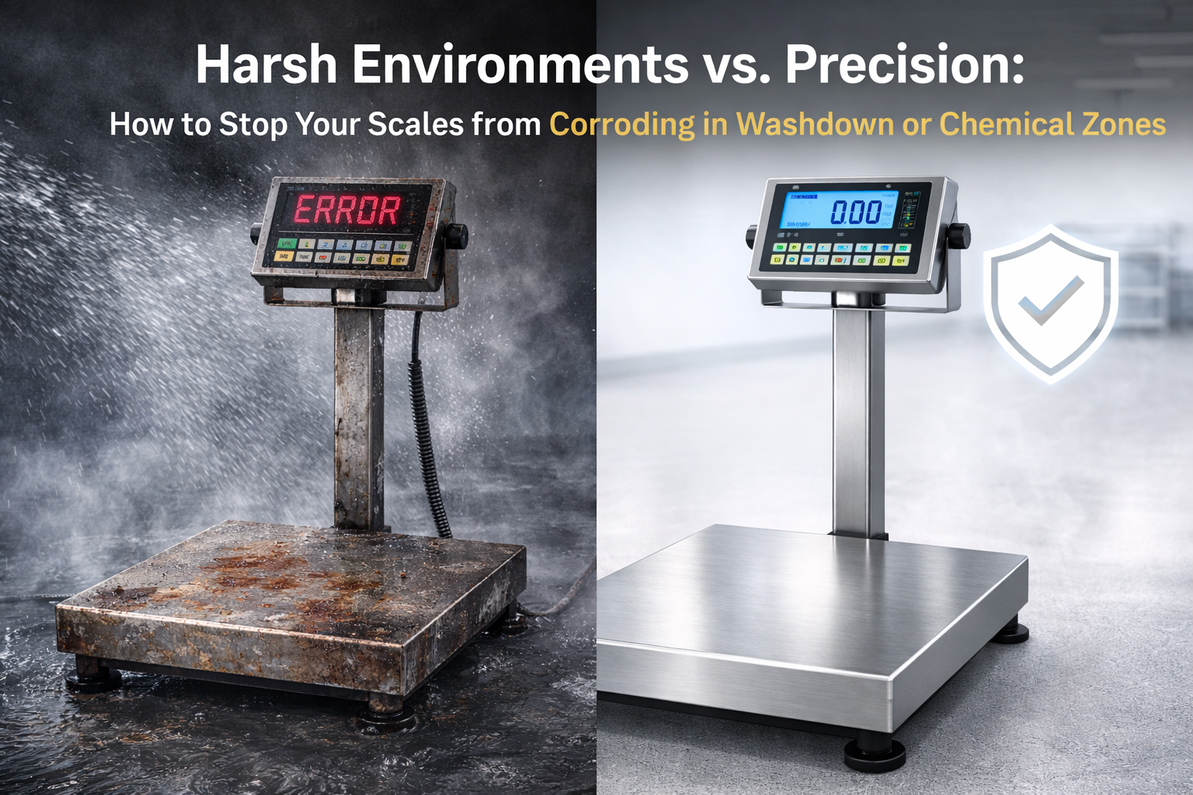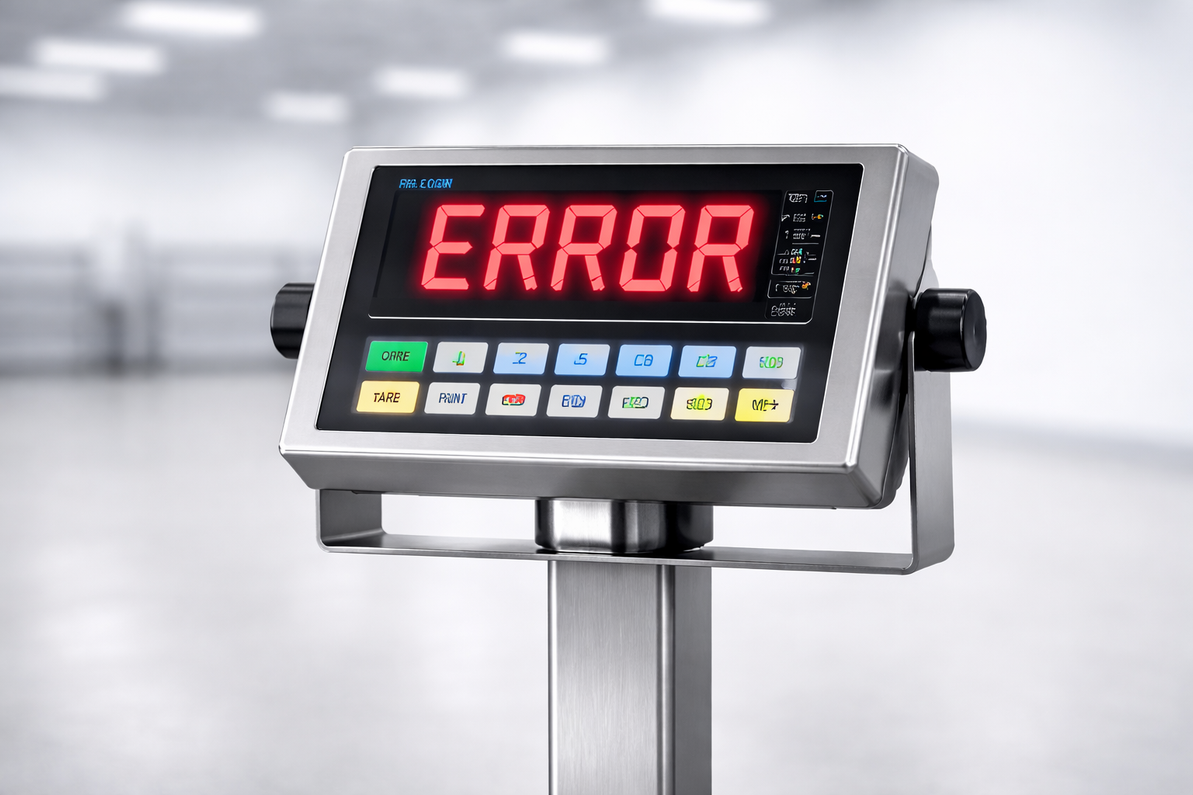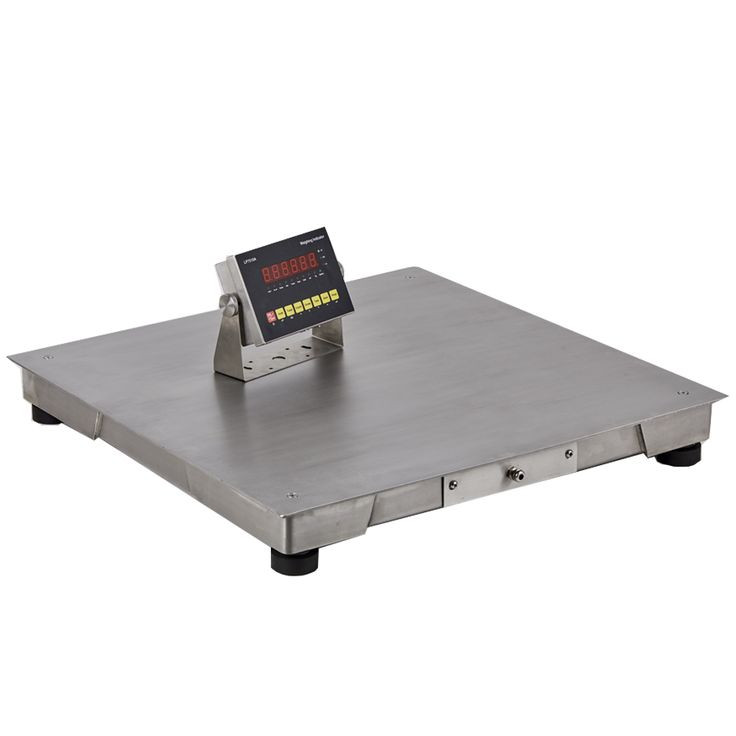Understanding NTEP Certified Balance Scales: Ensuring Accuracy and Compliance
Whether you're running a laboratory, pharmacy, or retail business, one thing is certain—measurement accuracy is critical. When your operations depend on precise measurements, every gram, ounce, or pound matters. This is where NTEP-certified balance scales come into play.
Essential Takeaways
- NTEP Certification Ensures Accuracy: National Type Evaluation Program certification confirms scales meet national accuracy standards, ensuring reliable and compliant measurements.
- Choose the Right Scale: Pick a National Type Evaluation Program-certified balance scale that fits your needs for optimal accuracy and performance.
- Regular Maintenance is Crucial: Maintain and calibrate your scale regularly to ensure it remains accurate and compliant.
But what does "NTEP certified" really mean? How does it ensure compliance and, most importantly, why should it matter to your business? In this blog, we’ll dive deep into the world of NTEP-certified scales, explaining their importance and how they help businesses maintain accuracy and comply with regulations.
What are NTEP Certified Balance Scales?
Let’s start by breaking down what the National Type Evaluation Program-approved weighing scales are. NTEP stands for the National Type Evaluation Program, which is administered by the National Conference on Weights and Measures (NCWM). This certification program ensures that weighing and measuring devices meet strict standards for accuracy and performance before they are sold and used commercially.
In short, when a balance scale is National Type Evaluation Program certified, it has been tested, evaluated, and proven to meet national standards for accuracy and reliability. If your business needs to ensure accurate weighing—whether for legal purposes or to meet customer expectations—using an NTEP certified balance scale is crucial.
The Certification Process
The certification process isn’t just a simple stamp of approval. Manufacturers submit their scales to be tested under various conditions to evaluate their accuracy, durability, and consistency. The scale must pass rigorous tests, including operating in different environments and under variable loads. Only when a scale meets or exceeds all these benchmarks can it be labelled as NTEP certified.
Why Certification Matters
The importance of using NTEP-certified scales cannot be overstated. When you use a certified scale, you are not only ensuring accuracy in every measurement, but you are also complying with legal standards. For businesses operating in regulated industries, this certification can help avoid fines and legal disputes, ensuring that customers receive accurate, fair measurements every time.
Key Features of NTEP Certified Balance Scales
NTEP-compliant balance scales are more than just typical scales. They are designed and built to meet strict standards and deliver accurate readings consistently. Below are some of the key features that set them apart:
Accuracy and Precision in Measurement
Accuracy is perhaps the most important feature of any balanced scale, especially in industries where even minor discrepancies can have major consequences. NTEP-approved weighing scales ensure high precision, meaning you can rely on them to provide exact readings every single time. This is essential in sectors like pharmaceuticals, laboratories, and retail, where inaccuracies could result in faulty products, financial loss, or legal ramifications.
For example, consider a pharmacy dispensing medication. Even a small error in weight can lead to incorrect dosage, which could harm the patient. With an NTEP-compliant balance scale, you eliminate the risk of inaccurate measurements, giving you peace of mind that the numbers you see are correct.
Durability and Performance Standards
These scales are built to last. Part of the National Type Evaluation Program certification process involves testing the scale's performance under different conditions—whether that’s fluctuating temperatures, varying loads, or extended use. NTEP-compliant balance scales won’t just perform well on day one; it will continue to deliver reliable results over time.
Industries That Rely on National Type Evaluation Program Certified Scales
You might be wondering: "Do I need an NTEP-certified scale for my business?" The answer depends on the industry you're in. Many industries are heavily regulated, requiring precision and compliance with national standards, making certified scales an essential tool. Here are a few examples:
Healthcare and Pharmaceuticals
The healthcare and pharmaceutical industries depend on precision, especially when it comes to dosage and medication formulation. Even the smallest error in measurement can result in serious health consequences. National Type Evaluation Program-approved weighing scales ensure that pharmacies, hospitals, and research labs get accurate and reliable measurements when mixing medications, preparing treatments, or conducting research.
Retail and Commerce
In retail, weight often determines the price of a product, especially in stores that sell items by weight, such as groceries, butcher shops, and farmers’ markets. Using National Type Evaluation Program scales ensures that both businesses and customers are protected. Businesses can ensure that they aren’t overcharging (or undercharging) their customers, while consumers can trust that they’re paying the correct price for what they’re buying.
Agriculture and Food Processing
For industries like agriculture and food processing, weight-based transactions are crucial. Whether you’re weighing livestock, grain, or packaged foods, accuracy is key to determining pricing and regulatory compliance. Inaccurate measurements could lead to financial loss, unhappy customers, or even legal penalties.
Benefits of Using NTEP-approved weighing scales
Now that we understand what National Type Evaluation Program balance scales are and where they are used, let's dive into the specific benefits your business can gain by investing in these scales.
Legal Compliance
One of the primary benefits of using NTEP-certified scales is legal compliance. In many industries, using uncertified scales could result in hefty fines or penalties. By using NTEP balance scales, you ensure that your business complies with local, state, and national laws, protecting you from legal complications.
For instance, if you’re selling products by weight, the law often requires that you use a scale that has been certified by the NCWM through the NTEP process. Using uncertified equipment in these cases is illegal and can lead to costly consequences.
Customer Trust and Confidence
Customers value fairness and transparency, especially when it comes to businesses that sell goods by weight. By using certified balance scales, you show your customers that you care about delivering accurate and fair measurements. This not only builds trust but also improves customer satisfaction, which is essential for building long-term relationships and repeat business.
Avoiding Fines and Legal Penalties
As mentioned earlier, using uncertified scales in many industries can lead to fines or penalties. If your business is found to be using scales that don’t meet legal standards, you could face inspections, recalls, or even lawsuits. NTEP scales protect you from these risks, ensuring that your operations are both accurate and legally compliant.
How to Choose the Right Balance Scale
Choosing the right NTEP certified balance scale for your business can seem like a daunting task with all the options available. However, understanding your specific needs can simplify the decision-making process.
Understanding Your Needs
Start by assessing your business requirements. Ask yourself:
What are you weighing, and what level of precision do you need?
How frequently will the scale be used?
Do you need portability, or will the scale remain in one place?
For instance, a pharmacy might need a small, highly precise NTEP-certified balance scale for measuring medications, while a retail business might require a larger scale for weighing products in bulk.
Comparing Different Models
Once you’ve assessed your needs, compare the different models available. Look for features like:
Capacity: What’s the maximum weight the scale can handle?
Readability: How many decimal places does the scale display?
Durability: Is the scale built to last, especially in high-use environments?
By comparing these features, you can find the best scale to meet your business needs while ensuring it complies with certification standards.
Common Mistakes to Avoid When Using Certified Scales
Even with a top-quality NTEP-certified scale, there are common mistakes that can lead to inaccurate readings or non-compliance. Here’s what to watch out for:
Calibration and Maintenance
One of the most common mistakes is failing to regularly calibrate and maintain your scale. Over time, scales can drift from their original calibration, leading to inaccurate measurements. Make sure to follow the manufacturer’s recommendations for calibration intervals and have the scale serviced by a professional if necessary.
Using the Scale for Incorrect Applications
Another mistake is using your scale for tasks it wasn’t designed for. Each NTEP-certified scale has specific weight limits and applications. For instance, a scale designed for laboratory use might not hold up in a heavy-duty industrial environment. Make sure you’re using the right tool for the job to avoid inaccuracies and potential damage to the equipment.
Future of NTEP Certified Scales: Innovations and Trends
The world of weighing technology isn’t stagnant. National Type Evaluation Program-certified scales are constantly evolving to meet the demands of modern businesses. Let’s take a look at some exciting trends that are shaping the future of these scales.
Technological Advancements in Measurement
Advances in technology have led to the creation of more sophisticated weighing systems. These new systems offer greater accuracy, reliability, and ease of use. Many modern scales now come with features like touchscreens, wireless connectivity, and real-time data logging. These innovations are making it easier than ever to integrate scales into business operations and ensure accurate, compliant measurements.
Integration with IoT and Smart Systems
Another trend is the integration of scales with the Internet of Things (IoT) and other smart systems. Businesses can now connect their scales to their wider networks, allowing for real-time monitoring, data collection, and automatic adjustments. This means fewer manual processes and improved accuracy in day-to-day operations.
For example, in a warehouse setting, smart scales can be connected to inventory systems, automatically updating stock levels as items are weighed. This saves time, reduces errors, and ensures that businesses always have accurate information at their fingertips
FAQs
1. What does NTEP certification guarantee?
NTEP certification guarantees that a balance scale meets national standards for accuracy and legal use in commercial transactions. It ensures that the scale has been tested and approved by the National Conference on Weights and Measures (NCWM) to perform accurately under various conditions.
2. How often do National Type Evaluation Program scales need to be calibrated?
The frequency of calibration depends on how often the scale is used and the environment in which it operates. Generally, it's recommended to calibrate your scale regularly, according to the manufacturer's guidelines. High-use or harsh environments may require more frequent calibrations.
3. Can these scales be used for all types of measurements?
While these scales are designed to ensure accuracy and compliance for a wide range of applications, it’s important to choose a scale that fits your specific needs. There are scales certified for different capacities and purposes, so ensure you select one suited for your particular use case.
4. What should I do if my NTEP-certified scale gives inaccurate readings?
If your scale provides inaccurate readings, check for common issues such as improper calibration, damage, or environmental factors affecting performance. Refer to the manufacturer’s troubleshooting guide or contact a professional technician for maintenance or repair.
5. Are NTEP scales more expensive than non-certified scales?
Yes, they can be more expensive than non-certified scales due to the rigorous testing and certification process. However, the investment is worthwhile for businesses that require precise and legally compliant measurements to avoid legal issues and ensure customer trust.
Recent Posts
-
Harsh Environments vs. Precision: How to Stop Your Scales from Corroding in Washdown or Chemical Zones
Does your weighing equipment fail every few months? It is frustrating. You buy a new scale. It work …27th Feb 2026 -
What to Do When Your Industrial Scale Fails: Troubleshooting Guide
Have you ever experienced your weighing scale stop working in the middle of your shift? Nothing stop …27th Feb 2026 -
Everything You Must Know to Ensure Industrial Scale Compliance and Avoid Costly Fines
Did you know one bad scale reading can get you fined? It's true. Many businesses mess up their scale …3rd Feb 2026



